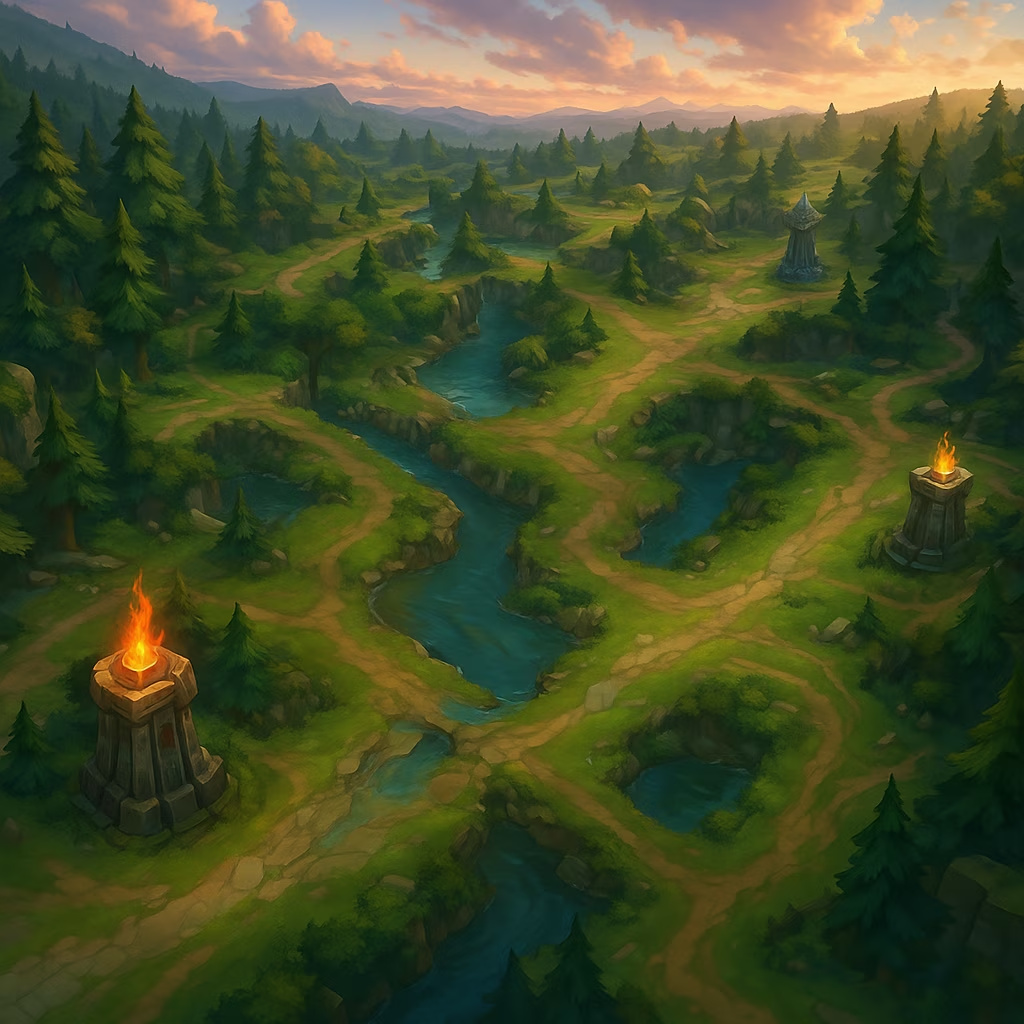When One More Game set out to create Spellcraft, they embarked on what many would call a fool's errand: designing a competitive game that refused to mimic existing genres. What began as a real-time card game swiftly unraveled when developers realized players were wrestling with clunky mechanics rather than each other—a design they humorously dubbed "cursed." This pivotal failure sparked a reinvention, birthing a chaotic fusion of autobattling, League of Legends-style abilities, and hex-grid tactics that feels wholly alien in today's gaming landscape. As 2025 unfolds, Spellcraft stands as a daring experiment in originality, challenging players to master its brutal learning curve while redefining what live-service games can achieve. Its success hinges on balancing innovation with accessibility—a tightrope walk One More Game navigates with equal parts ambition and anxiety.
The Rocky Road to Revolution
Spellcraft's development journey reads like a masterclass in creative pivoting. After scrapping the initial card-based prototype, the team doubled down on their founding ethos: build something unprecedented. Head designer Nik Davidson captures this duality perfectly: "The good news is we succeeded. The bad news is we succeeded." This triumph birthed a real-time strategy hybrid so unique it defies simple explanation. Players command heroes across hexagonal battlefields, deploying timed abilities while managing auto-fighting units—a cocktail of mechanics requiring razor-sharp reflexes and strategic foresight.
-
Core gameplay blend: Autobattler foundations + MOBA skillshots + chess-like positioning
-
Match structure: Lightning-fast 5-minute rounds punctuated by tactical pauses
-
Accessibility paradox: Designed for watchability despite overwhelming complexity

Why Watchability Reigns Supreme
In an era where Twitch streams rival traditional entertainment, Spellcraft engineered its chaos for spectators. "Watchability was a day-zero goal," emphasizes Davidson, contrasting it with his past work on Lord of the Rings Online. Matches erupt with screen-filling effects—fireballs colliding with laser beams while an octopus pirate captain grows tentacles mid-fight—yet strategic clarity emerges during between-round pauses. These respites let players (and streamers) analyze replays, select gear upgrades, and engage audiences. It’s a genius solution for converting viewers into participants.
```markdown
| Watchability Feature | Purpose |
|---|---|
| 5-minute matches | Fits attention spans |
| Replay breaks | Enables commentary |
| Visual clarity | Eases viewer comprehension |
| Thematic diversity | Broad audience appeal |
```
Characters: The Heartbeat of Spellcraft's Universe
Beyond mechanics, Spellcraft invests heavily in personality. Its roster mashes fantasy staples with absurdist twists—think cybernetic elves versus shrimp samurais—culminating in 28 planned heroes. The aforementioned octopus pirate exemplifies this charm, evolving during battles to reward tactical patience. Davidson confirms the cast intentionally represents "as many people and genres as possible," fueling hopes for spin-offs. Could this aquatic antihero anchor an Arcane-style series? The developers certainly dream of a "reverse Smash Bros." phenomenon where character love births new franchises.
Surviving the Live-Service Gauntlet
Launching an original IP in 2025’s saturated market is treacherous. Davidson acknowledges competing not just against strategy games, but Netflix and social media: "You're battling for leisure minutes." Spellcraft combats this through:
-
✅ Free-to-play integrity: Cosmetic-only monetization (no pay-to-win)
-
✅ Rapid iteration: Daily balance tweaks during beta testing
-
✅ Community focus: Player feedback directly shapes updates
Alpha responses surprised even skeptics, with players embracing the complexity as a badge of honor. Game director Jamie Winsor beams: "We took a big swing when others played safe."
People Also Ask: Burning Spellcraft Queries
- "Is Spellcraft pay-to-win?"
Absolutely not. Monetization sticks to battle passes and character skins.
- "How long to master Spellcraft?"
Expect 10+ hours grasping basics—the skill ceiling rivals chess.
- "Can I play solo?"
Yes, though designed for competitive 3v3 mayhem.
- "When's the full release?"
Late 2025, following April’s Steam beta test.
One Gamer's Vision: Where Spellcraft Could Soar
Having battled through beta’s glorious pandemonium, I foresee Spellcraft evolving beyond a game into a genre-defining platform. Imagine tournaments where evolving meta-strategies become spectator sports, or character backstories unfolding through animated shorts. That octopus captain? She deserves her own noir-inspired spinoff. While the learning curve remains daunting, Spellcraft’s willingness to prioritize originality over imitation could cement it as this decade’s most influential strategy title—if players embrace the beautiful chaos. One More Game didn’t just build a game; they planted a flag where none existed. Now, we watch it grow.
The path ahead remains perilous, but Spellcraft’s 2025 resurgence proves innovation still thrives. As Winsor told me: "This isn’t just another clone—it’s your next obsession." Only time will tell if players worldwide agree.
